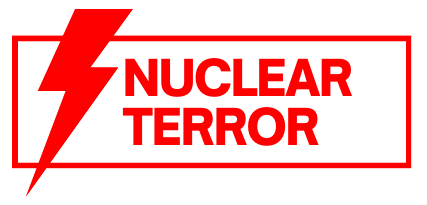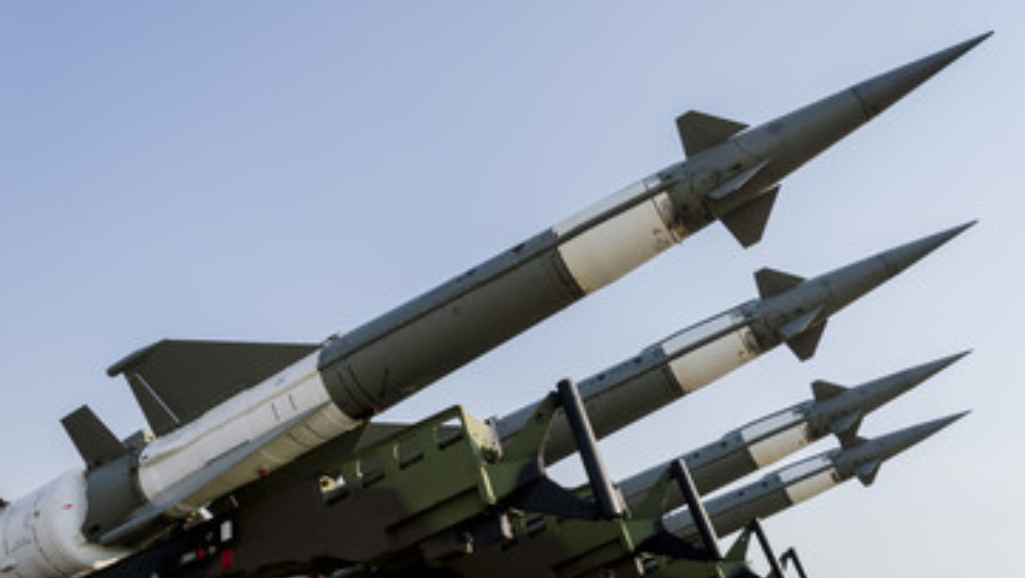Do you know what the nuclear threat really means? In this article, we’ll explore the origins, historical examples, and current global threats posed by nuclear weapons. We’ll also examine the role of non-state actors, the impact on global politics, and the humanitarian consequences. Furthermore, we’ll discuss strategies to mitigate this threat and what it means for the future. So, join us as we delve into the complexities of the nuclear threat and its far-reaching implications.
The Origins of the Nuclear Threat
The origins of the nuclear threat can be traced back to the development and use of atomic weapons during World War II. The implications of this technological advancement were profound and far-reaching. The successful testing of the first atomic bomb, codenamed “Trinity,” by the United States in July 1945 marked the beginning of a new era. The devastating bombings of Hiroshima and Nagasaki shortly thereafter demonstrated the destructive power of nuclear weapons, causing immense loss of life and leaving lasting physical and psychological scars on the affected populations.
The development and use of atomic weapons during World War II raised serious concerns about the potential for devastating global conflict. The atomic bombings of Hiroshima and Nagasaki were unprecedented in their destructive capability, leading to a heightened sense of vulnerability among nations. The emergence of two superpowers, the United States and the Soviet Union, as possessors of nuclear weapons further escalated tensions during the Cold War era.
The implications of the nuclear threat were not limited to the potential for large-scale destruction. The possession of nuclear weapons also provided nations with a significant source of political and military leverage. The deterrence theory, popularized during the Cold War, posited that the possession of nuclear weapons served as a deterrent against aggression, preventing large-scale conflicts between nuclear-armed nations.
The origins of the nuclear threat, rooted in the development and use of atomic weapons during World War II, have had profound implications for global security and geopolitics. The destructive power of nuclear weapons and the subsequent arms race between nations have shaped international relations and influenced strategic decision-making for decades. The nuclear threat continues to be a pressing concern in the modern world, highlighting the need for effective arms control and non-proliferation efforts.
Historical Examples of Nuclear Threats
When considering the historical examples of nuclear threats, one must recognize the gravity of events that have occurred. Throughout history, there have been several instances that serve as historical precedents for the potential devastation of nuclear weapons. One such example is the Cuban Missile Crisis in 1962, where the United States and the Soviet Union came dangerously close to nuclear war. The presence of Soviet missiles in Cuba prompted a tense standoff between the two superpowers, with the world on the brink of catastrophe. Fortunately, diplomacy and negotiation prevailed, and a nuclear conflict was averted.
Another historical example of a nuclear threat is the Cold War between the United States and the Soviet Union. This period was characterized by the concept of nuclear deterrence, where both countries maintained large arsenals of nuclear weapons to deter each other from launching an attack. The fear of mutually assured destruction served as a deterrent and prevented a full-scale nuclear war from breaking out.
These historical examples highlight the precarious nature of the nuclear threat. They remind us of the catastrophic consequences that could result from the use of nuclear weapons. It is crucial to learn from these precedents and work towards disarmament and non-proliferation to ensure a safer and more secure world.
Current Nuclear Threats Across the Globe
To better understand the nuclear threat, let’s now delve into the current state of nuclear threats across the globe. This involves looking at the current nuclear negotiations and the nuclear weapon stockpiles of various countries.
Here is a table showcasing some key information:
| Country | Current Nuclear Negotiations | Nuclear Weapon Stockpiles |
|---|---|---|
| United States | Engaged in negotiations with Iran and North Korea | Possesses the largest stockpile of nuclear weapons |
| Russia | Involved in arms control talks with the United States | Has the second largest nuclear arsenal |
| North Korea | Engaged in negotiations with the United States | Has a small but growing nuclear weapon stockpile |
| Iran | Participating in talks with the United States and other world powers | Currently does not possess nuclear weapons |
The United States, with the largest nuclear weapon stockpile, is actively involved in negotiations with Iran and North Korea to address their nuclear programs. Russia, the country with the second largest arsenal, is also engaged in arms control talks with the United States. North Korea, while having a small but growing nuclear weapon stockpile, is actively participating in negotiations with the United States. Iran, on the other hand, currently does not possess nuclear weapons but is involved in talks with the United States and other world powers to address concerns about its nuclear program.
The Role of Non-State Actors in the Nuclear Threat
While non-state actors play a significant role in the nuclear threat, it is important to understand the potential risks they pose. These actors, who are not affiliated with any government, have the capability to disrupt global security and stability through their actions. Here are three key points to consider:
- State-Sponsored Terrorism: Non-state actors, such as terrorist organizations, can be sponsored and supported by certain states. These actors may seek to acquire nuclear weapons or materials to carry out devastating attacks. The involvement of state sponsors amplifies the threat posed by these non-state actors, as they gain access to resources and expertise that would otherwise be inaccessible.
- Cyber Attacks: With the increasing reliance on digital systems in the nuclear sector, non-state actors can exploit vulnerabilities to launch cyber attacks. These attacks can target critical infrastructure, such as nuclear power plants or command and control systems, with the potential to disrupt operations or even trigger a nuclear incident. The ability to conduct such attacks without direct physical contact makes them an attractive method for non-state actors seeking to cause havoc.
- Lack of Accountability: Non-state actors are not bound by the same rules and regulations as states. This lack of accountability can make it more difficult to deter or respond to their actions. Additionally, their motivations may not align with those of traditional nation-states, making it challenging to predict their behavior or negotiate with them.
Understanding the role of non-state actors in the nuclear threat is crucial for effective countermeasures and global security. By recognizing the potential risks they pose, governments and international organizations can develop strategies to mitigate these threats and prevent catastrophic consequences.
The Impact of Nuclear Threats on Global Politics
The impact of nuclear threats on global politics is profound and far-reaching. One of the key consequences is the shift in global power dynamics, as nations with nuclear capabilities hold significant influence over those without. This leads to increased diplomatic tensions and the formation of alliances based on nuclear deterrence. Understanding the impact of nuclear threats on global politics is crucial for navigating the complex landscape of international relations.
Global Power Dynamics
In assessing the impact of nuclear threats on global politics, you must consider the complex interplay between nations through the lens of power dynamics. The presence of nuclear weapons has significantly influenced global power dynamics, shaping relationships between countries and affecting the balance of power. Here are three key aspects to consider:
- Nuclear deterrence: The possession of nuclear weapons provides a sense of security for nations, as it acts as a deterrent against potential attacks. This dynamic can lead to a more cautious approach in international relations, as countries are wary of provoking a nuclear-armed state.
- Nuclear proliferation: The spread of nuclear weapons to new states can disrupt existing power dynamics, potentially leading to increased tensions and conflicts. It is crucial to monitor and address nuclear proliferation to maintain stability in global politics.
- Arms control agreements: International agreements, such as the Treaty on the Non-Proliferation of Nuclear Weapons, play a vital role in regulating nuclear capabilities and maintaining a balance of power. These agreements aim to prevent the further spread of nuclear weapons and promote disarmament.
Understanding the complex interplay of global power dynamics is essential in navigating the impact of nuclear threats on global politics.
Diplomatic Tensions and Alliances
To understand the impact of nuclear threats on global politics, you must consider how they contribute to diplomatic tensions and alliances. Nuclear threats have the potential to disrupt diplomatic negotiations and strain relationships between nations. When a country possesses nuclear weapons or is perceived to have the capability to develop them, it can significantly alter the dynamics of international relations. The fear of nuclear proliferation and the increased risk of nuclear conflict can lead to increased diplomatic tensions and the formation of alliances among countries seeking to strengthen their global security. Nations may engage in strategic partnerships and military alliances to deter potential nuclear threats and protect their national interests. Additionally, diplomatic negotiations become more complex and delicate when nuclear weapons are involved, as the stakes are higher and the potential consequences more severe. Thus, the impact of nuclear threats on global politics is evident through the influence they have on diplomatic tensions and alliances.
The Humanitarian Consequences of a Nuclear Threat
Understand the catastrophic impact a nuclear threat can have on human lives. The humanitarian consequences of a nuclear threat are far-reaching and have the potential to disrupt global security significantly. Here are three key points to consider:
- Loss of life and devastation: A nuclear threat can result in the loss of millions of lives within seconds. The detonation of a nuclear weapon causes immediate destruction, including the collapse of buildings, fires, and the release of radioactive materials. The long-term effects of radiation exposure can lead to various health issues, including cancer and genetic mutations.
- Displacement and migration: A nuclear threat can force large populations to flee their homes. The destruction of critical infrastructure, contamination of land and water, and the fear of further attacks can lead to mass displacement and migration. This places immense strain on neighboring countries, exacerbating existing humanitarian crises and potentially fueling conflicts.
- Environmental devastation: A nuclear threat can cause severe environmental damage. The detonation of a nuclear weapon releases a vast amount of radioactive particles into the atmosphere, contaminating soil, water sources, and ecosystems. The long-lasting effects can disrupt agriculture, contaminate food supplies, and render large areas uninhabitable.
The humanitarian consequences of a nuclear threat are horrifying. It is crucial for global leaders to prioritize efforts to prevent nuclear proliferation and ensure the safety and security of all nations.
Strategies to Mitigate the Nuclear Threat
To mitigate the nuclear threat, diplomatic negotiations and agreements are essential. By engaging in dialogue and reaching consensus, countries can work towards disarmament and non-proliferation. These strategies aim to reduce the number of nuclear weapons in existence and prevent their spread, ultimately enhancing global security and reducing the risk of nuclear conflict.
Diplomatic Negotiations and Agreements
Explore effective strategies for mitigating the nuclear threat through diplomatic negotiations and agreements. Diplomatic negotiations play a crucial role in promoting peace and stability by reducing the risk of nuclear conflict. Here are three key strategies:
- Arms control agreements: These agreements aim to limit the development, deployment, and proliferation of nuclear weapons. They often involve disarmament obligations, verification mechanisms, and confidence-building measures.
- Non-proliferation treaties: These international agreements seek to prevent the spread of nuclear weapons to non-nuclear states. They establish safeguards and monitoring systems to ensure compliance and discourage countries from acquiring nuclear capabilities.
- Bilateral and multilateral talks: Diplomatic negotiations between nations provide opportunities to address specific concerns, build trust, and find common ground. These talks can lead to agreements on nuclear disarmament, non-proliferation, and peaceful uses of nuclear energy.
Disarmament and Non-Proliferation
One effective strategy to mitigate the nuclear threat is through disarmament and non-proliferation efforts. Disarmament refers to the reduction or elimination of nuclear weapons, while non-proliferation aims to prevent the spread of nuclear weapons to additional states or non-state actors. However, achieving disarmament and non-proliferation goals face significant challenges. Disarmament challenges include the complex process of verifying and monitoring nuclear disarmament agreements, as well as the lack of trust and transparency among nuclear-armed states. Proliferation risks arise from the possibility of non-state actors acquiring nuclear weapons or technologies, as well as the potential for states to covertly develop or acquire nuclear capabilities. To address these challenges, strengthening international norms, enhancing verification mechanisms, and promoting dialogue and cooperation among states are crucial steps towards achieving disarmament and non-proliferation objectives.
The Future of the Nuclear Threat and Its Implications
In the article, you will explore the future of the nuclear threat and its implications. The growing concern surrounding the potential use and spread of nuclear weapons has prompted the need for a deeper understanding of the future implications and global security measures that must be taken. Here are three key points to consider:
- Escalation of Arms Race: As more countries seek to acquire nuclear capabilities, the risk of an arms race intensifies. This could lead to a dangerous proliferation of nuclear weapons, increasing the likelihood of their use or falling into the wrong hands.
- Emerging Technologies: Advancements in technology, such as cyber warfare and artificial intelligence, pose new challenges in maintaining nuclear security. These technologies could potentially be used to exploit vulnerabilities in nuclear infrastructure or disrupt communication systems, heightening the risk of accidental or intentional nuclear incidents.
- Climate Change and Nuclear Infrastructure: The effects of climate change, such as rising sea levels and extreme weather events, pose threats to nuclear power plants and storage facilities. These vulnerabilities could compromise the safety and security of nuclear materials, potentially leading to catastrophic consequences.
To address these future implications, global security measures must prioritize arms control agreements, strengthen non-proliferation efforts, enhance nuclear security protocols, and promote international cooperation. It is crucial to remain vigilant and proactive in safeguarding against the nuclear threat to ensure a safer and more secure future for all.


